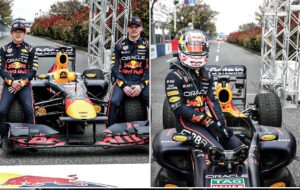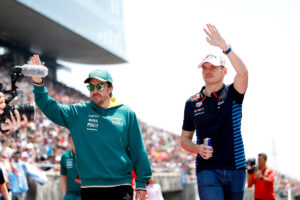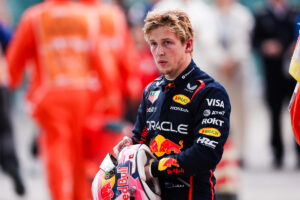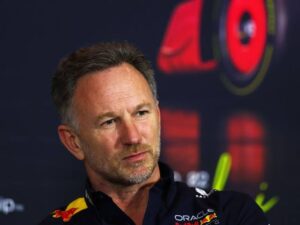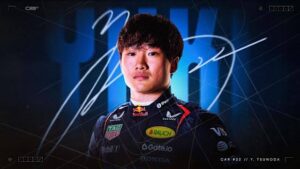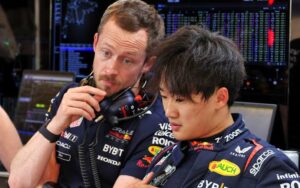BREAKING NEWS: Red Bull Star Issues Tough Verdict on Verstappen’s Do…Read More

Red Bull Star Issues Tough Verdict on Verstappen’s Dominance in Formula 1
A stark warning has been delivered to Formula 1 drivers aspiring to challenge Max Verstappen’s supremacy in the sport. The Dutch driver, who secured his fourth consecutive world championship title with Red Bull last year, remains the benchmark in motorsport and is set to chase a fifth consecutive title this season. Such a feat would tie him with Michael Schumacher, who holds the record for consecutive title wins.
Since dethroning British racing icon Lewis Hamilton in the controversial 2021 Abu Dhabi finale, Verstappen has been the driver to beat. His unparalleled talent, work ethic, and dedication suggest he could maintain his dominance for years. Among the keys to Verstappen’s success is his commitment to simulator (sim) racing, a factor that has contributed significantly to his sharpness on the track.
Sim racing isn’t just a professional tool for Verstappen—it’s also a personal passion. He frequently competes in Esports events, a commitment that has occasionally caused tension with his Red Bull F1 team. For instance, Verstappen reportedly stayed up late competing in a sim race the night before struggling in the Hungarian Grand Prix.
Sim Racing as a Competitive Edge
Red Bull sim racer Jarno Opmeer, an advocate for sim racing, recently emphasized the importance of this practice in modern motorsport. Speaking to Formule1.NL, Opmeer explained how Verstappen’s dedication to sim racing gives him a competitive edge and serves as an example for other drivers.
“Max is a pioneer in F1 when it comes to sim racing,” Opmeer said. “If other drivers want to compete at his level, they have no choice but to invest in it. Without it, they simply won’t be good enough.”
Opmeer pointed out that younger drivers, particularly those in Formula 2 (F2), have embraced sim racing as a critical part of their preparation. He noted the presence of rising stars like Oliver Bearman, Gabriel Bortoletto, and Kimi Antonelli on platforms like iRacing. These drivers, who were standouts in F2, have now earned F1 seats for the 2025 season. Antonelli’s signing with Mercedes, replacing seven-time champion Hamilton, is particularly noteworthy.
In contrast, Opmeer observed that drivers underperforming in F2 are rarely seen in the virtual racing world, suggesting a link between sim racing dedication and on-track success. “It’s not just about sim racing, but it shows which drivers are willing to put in extra effort,” he explained.
Technical Benefits of Sim Racing
Beyond its role as a training tool, sim racing enhances a driver’s technical knowledge. “You learn about setups, how different configurations feel, and how they impact performance,” Opmeer said. “This understanding is crucial as you move up through the racing ranks.”
While sim racing may not be essential for Formula 4 drivers, it becomes increasingly important in higher categories, where technical precision and adaptability are vital. Verstappen’s deep involvement in sim racing demonstrates his relentless drive to improve, setting a standard that competitors must strive to match.
The Future of F1 Preparation
Verstappen’s approach underscores the evolving nature of Formula 1 preparation. As younger drivers embrace sim racing, it’s clear the virtual world is becoming an integral part of the sport. For those hoping to challenge Verstappen’s reign, a similar commitment to innovation and effort may be the only way to bridge the gap.
With Verstappen showing no signs of slowing down, the road to dethroning the four-time champion remains daunting. His relentless work ethic and willingness to explore every avenue for improvement continue to set him apart, leaving rivals with little choice but to follow his lead—or risk being left behind.

